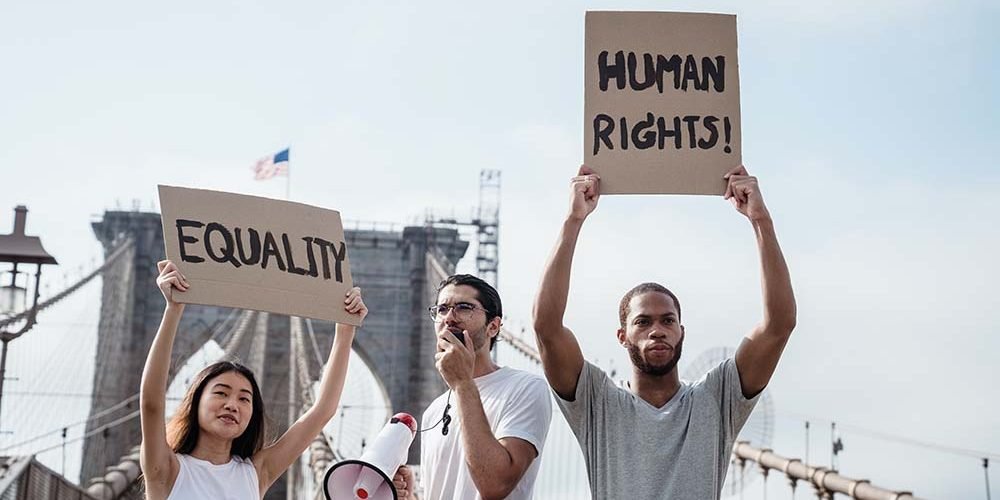The global problem of religious persecution impacts people of all religions. The list of religious communities that are most commonly persecuted includes Christians. This article aims to examine the factors that make Christians one of the most severely persecuted religious communities in the modern world.
Table of Contents
Historical Context
Understanding the historical background is crucial to comprehend the question of “why are Christians persecuted?”. One of the oldest religions in the world, Christianity has endured centuries of religious struggle and persecution. Christianity has experienced difficulties throughout history, from the early persecution of the Roman Empire through the Crusades of the Middle Ages and the Wars of the Reformation. This historical heritage has had a long-lasting effect on how Christians are viewed and treated in many places.
Triumphs and setbacks have both been part of Christianity’s historical path. The Roman Empire initially persecuted Christians because their faith was considered a threat to the status quo. Christianity was later utilized as a rallying cry for invasion in the name of religion throughout the medieval Crusades. Wars during the Reformation further split Christian communities, sparking sectarian strife. It is necessary to understand current Christian persecution in light of this stormy past.
Geographic Distribution
Christians may be found on almost every continent, making Christianity a worldwide religion. However, not all places embrace Christian views on an equal basis. Some of the most severe persecution occurs in nations where other religions, such as Islam, Hinduism, or Buddhism, are widely practiced. Due to their potential status as an outcast or minority group in certain regions, Christians are frequently persecuted because of their geographic dispersal.
Because of Christianity’s widespread influence, its adherents are exposed to diverse cultural and religious practices. Christians may experience particular difficulties preserving their faith and sense of self in locations where other religions are more prevalent. Religious customs and beliefs can occasionally cause disagreements and tensions that culminate in persecution.
Religious Intolerance
Christian persecution is primarily motivated by religious bigotry. Christian minorities and oppressors result from religious fanaticism and extremism in some nations. Radical organizations see Christians as dangers to their religious and cultural identities, frequently motivated by extreme interpretations of their religion. Violence, prejudice, and limitations on religious rites are just a few examples of how this intolerance might appear.
The persecution of Christians has worsened because of the spread of religious fanaticism throughout the globe. Extremist beliefs encourage hatred toward people of other religions, particularly Christians, in these areas. Religious piety is frequently used to excuse acts of violence and prejudice, which has disastrous effects on Christian communities.
Political and Social Factors
Christians may be persecuted for various reasons, including political and social ones. Governments may employ religion as a weapon to uphold order or quell discontent. Christians may be singled out because they support human rights and religious freedom or are considered dangerous to the established order. The difficulties experienced by Christian communities might be made even worse by discriminatory laws and practices.
Politico-religious entanglements may significantly affect how Christians are treated. Governments under authoritarian systems may try to restrict religious freedom and impose restrictions on religious activities, which can result in the persecution of Christian minorities. Additionally, authoritarian governments may target Christians for their support of social rights and fairness.
Socioeconomic Disparities
Christians frequently belong to marginalized populations that experience social inequalities. They may be more susceptible to discrimination because of these differences. Discrimination in employment, education, and resource access can result in social exclusion and a cycle of poverty, making it challenging for Christian communities to defend themselves or adequately defend their rights.
Christian communities are extremely vulnerable because of socioeconomic circumstances. Christians may be made easy targets for prejudice and persecution if they aren’t given equal opportunity and access to resources. The protection and welfare of Christian minorities depend on addressing these inequalities.
Conclusion
Around the world, Christians are persecuted for a variety of causes with origins in history, religion, culture, and politics. Christians have not been the only faith to undergo persecution, but their experiences are notable and should be taken into account. To combat Christian persecution, nations, authorities, and citizens must cooperate to foster freedom of religion and tolerance.. Recognizing how religious variety may benefit nations is crucial, and efforts should be taken to safeguard everyone’s rights and safety, irrespective of their religious affiliation.





